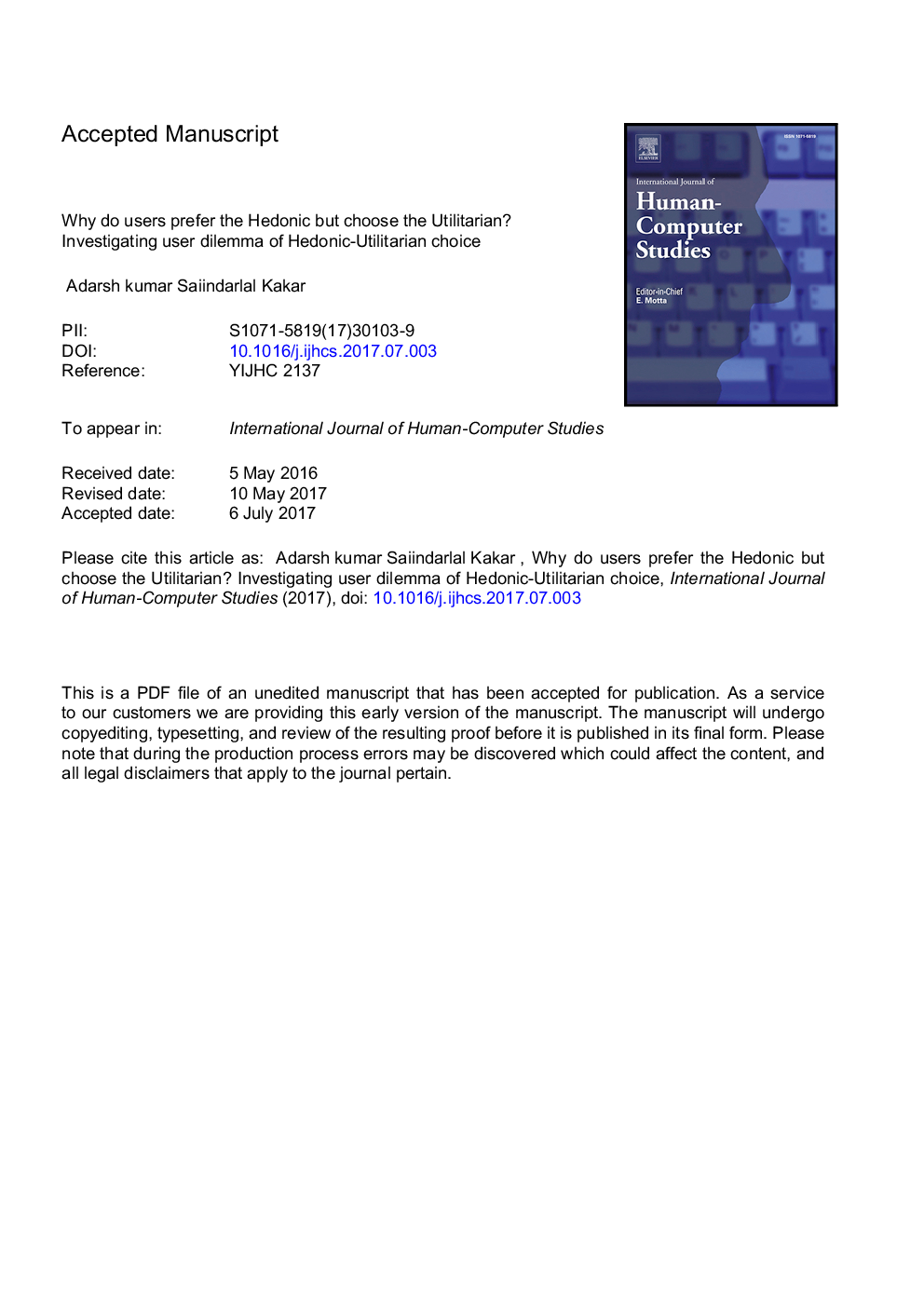| Article ID | Journal | Published Year | Pages | File Type |
|---|---|---|---|---|
| 4945755 | International Journal of Human-Computer Studies | 2017 | 36 Pages |
Abstract
Research studies have shown that although the hedonic product feature is more valued by users it is the utilitarian that is favored in acquisition choice situations. Further, the hedonic is more favored in forfeiture choice situations than the utilitarian. In this longitudinal study we examine this phenomenon with actual users of software. The results of the study show that as expected in acquisition situations users explicitly prefer the utilitarian although their implicit choice as reflected by the feature's impact on their satisfaction is for the hedonic. However, in forfeiture situations the explicit-implicit user preference is not based on hedonic-utilitarian considerations. The results also suggest the reason for this observed phenomenon. Unlike utilitarian features which consistently showed characteristics of Herzberg's hygiene factors in acquisition-forfeiture situations, hedonic features demonstrated characteristics of Herzberg's motivators only during acquisition, while demonstrating characteristics of hygiene factors during forfeiture. These findings offer interesting theoretical insights and have useful practical implications for product managers of software products.
Keywords
Related Topics
Physical Sciences and Engineering
Computer Science
Artificial Intelligence
Authors
Adarsh kumar Saiindarlal Kakar,
